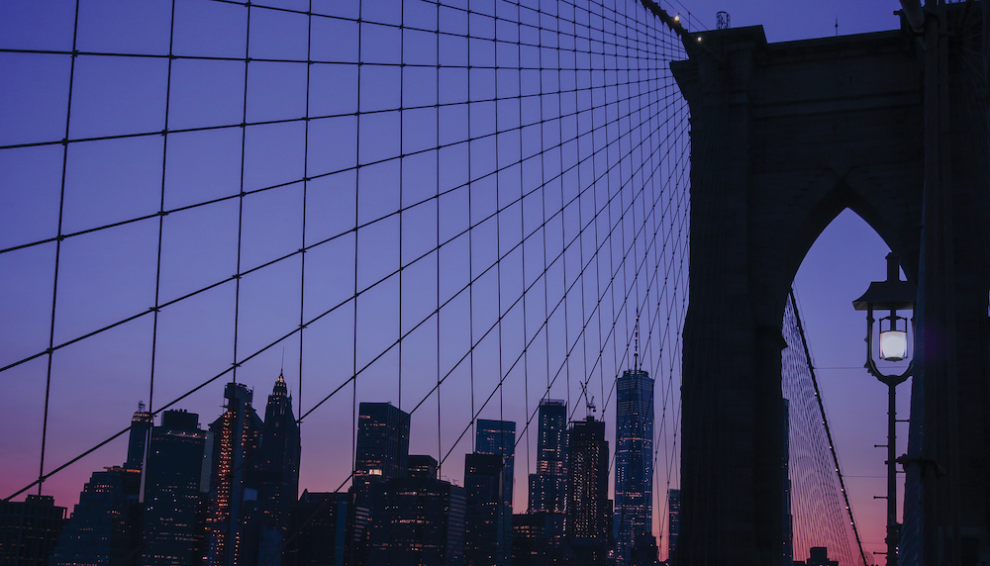I live in the epicenter of the American COVID-19 pandemic—Queens, New York. We lived through 9/11 and Hurricane Sandy, yet the pandemic feels different. An indeterminacy and isolation to the current moment elude quantification or categorization. So, as I think about the pandemic, grief, and hope, I find an upwelling of questions without answers.
“Time is greater than space,” proposes Pope Francis. “It helps us patiently to endure difficult and adverse situations, or inevitable changes in our plans. It invites us to accept the tension between fullness and limitation, and to give a priority to time.” When I first read Evangelii Gaudium (The Joy of the Gospel), I did not appreciate the depth of the pope’s point. As I comply with social distancing, the tensions of time and space are more palpable. The pandemic reveals many aspects of our social order, injustices, priorities, and common lives that we previously did not notice.
In this moment of pause we are called to look both inward and outward. Inward, it is a moment to consider the ecology of our daily life anew. As I write, I find the hope of declining daily death rates but not an end on the horizon. Eagerness to “get back to normal” is spreading. Yet perhaps this is a time not for returning but for reimagining the ecology of our daily lives.
Relationships with family and friends become both more intentional and precarious. How do we accompany each other while maintaining physical distance? This requires creativity, generosity, and significant self-care. In times of prolonged crisis we can easily feel like we’re failing, because there is no “normal.” Spiritually, I feel suspended in the anxiety of the disciples in the upper room: Where do we go from here? Who are we called to be? But perhaps there is much to learn from living in liminal space.
On Good Friday I lost a beloved great-uncle. The inability to come together to grieve, and to have a wake and funeral Mass, was painful. Can living in this context, and not rushing past it, open a space of solidarity with other Catholics, such as those in the Amazon region who because of distance and priest shortages experienced a scarcity of sacraments long before the pandemic?
As we look outward, two realities emerge. First, while everyone is at risk of the new virus, there is not equality of vulnerability. As a teacher, I am experiencing this period of distancing from a place of considerable privilege. Moving my courses online and attending to my students’ academic, emotional, and spiritual needs are challenging, but I have a stable job that allows me to physically distance.
COVID-19 is exposing—not creating—social, economic, and racial injustices. The structural inequities revealed by higher death rates among African Americans bring into the public vision realities to which scholars and activists have long tried to draw attention. Now that they have our attention, will we as a country pause long enough to address the need for public health infrastructure and other basic needs? Or will we rush back to a “normal” that leaves out many of our neighbors?
Before the pandemic, lists of “frontline responders” and “essential workers” always included police, firefighters, EMTs, and hospital workers. It is wonderful to see nurses and all hospital workers receive public recognition for their indispensable contribution to the common good. Other groups of people, many of whom work without fair wages or benefits and whose work is often overlooked as “essential,” are also finally receiving recognition: supermarket workers, delivery drivers, bus drivers, and many others. Can we envision a community in which their work is properly valued and their contribution celebrated rather than denigrated?
We are all called to participate in the common good. It emerges when we have full participation from all members of the community in the social, political, cultural, and economic life of the community. My hope is that we will choose to use our time living in this unusual context to ask ourselves who we are called to be. May we be open to the possibility of a more just and inclusive answer.
This article also appears in the July issue of U.S. Catholic (Vol. 85, No. 7, pages 40-41). Click here to subscribe to the magazine.
Image: Unsplash















Add comment